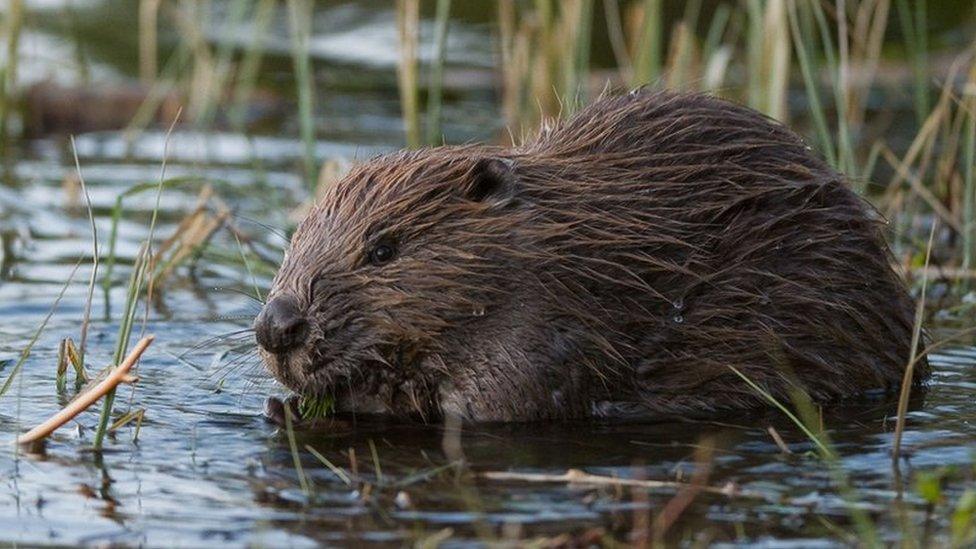Wales beaver reintroduction 'could cut flash-flooding'
- Published
- comments
Beavers: Friends or foes of Welsh countryside?
Wild beavers could be reintroduced to Wales for the first time in more than 400 years.
They were hunted and disappeared from Britain in the 17th Century, but have made a successful return to Scotland.
Although some have been released illegally, a project wants to introduce 20 beavers to the Dyfi River in Powys.
Environmentalists believe they could help stop floods while some farmers think they could "throw off the balance" between farming and wildlife.
The Welsh Beaver Project, which is consulting over the animal's return, believes a "beaver management system" would help mitigate concerns.
It hopes to secure a licence from Natural Resources Wales to introduce 10 pairs over five years.
Project officer Alicia Leow-Dyke said a system to manage the reintroduction had been designed after trials in Devon and Scotland.
"We do recognise that in some areas beaver damns may not be suitable," she said.
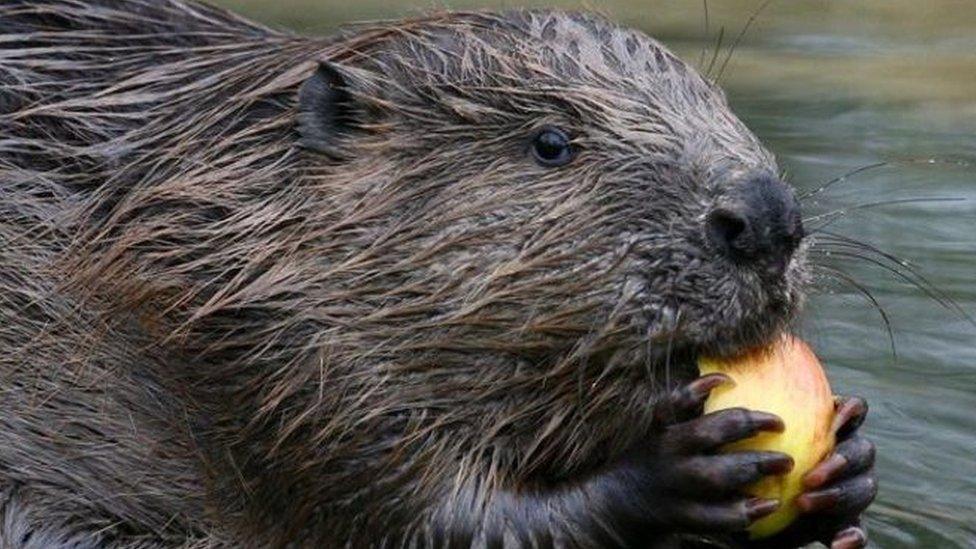
One farmer says the project can only take place on farmers' land and would "dramatically impact" it
Beavers were reintroduced to Scotland in 2009 and now enjoy protected status there.
Two were also released into a Yorkshire forest last year to help stop flooding.
Blaeneinion Nature Reserve introduced European Beavers into its enclosure in 2008 and they have been credited with engineering the landscape and helping with flood management.
Sharon Girardi, who lives in Artists Valley near Machynlleth, is backing the move.
"It's so important to bring beavers back because the benefits in terms of flood management are enormous," she said.
"Flash-flooding will be less, as the system of locks that the beavers create will slow that run off, which is win-win for all of our farming friends as well."
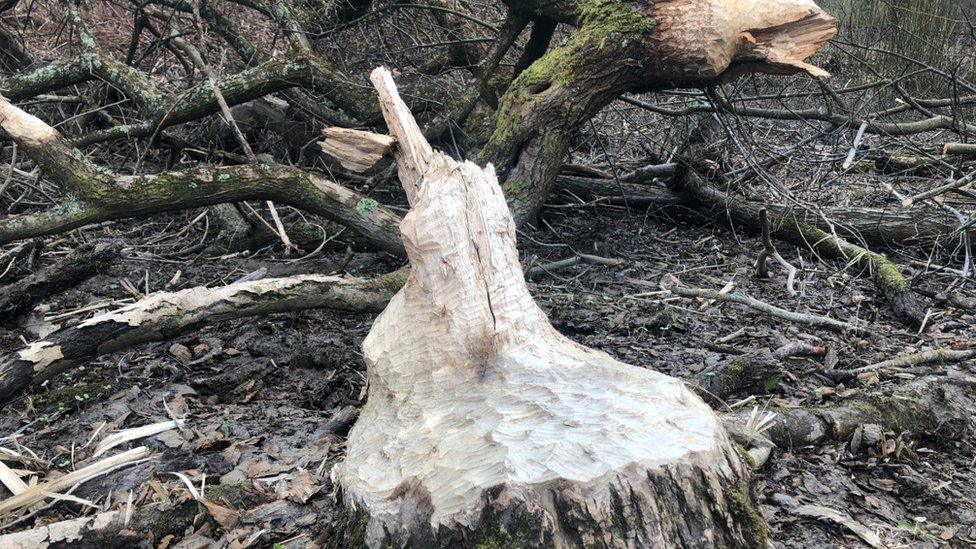
Illegally-released beavers have already made their mark on some trees along the Dyfi River
Gareth Wyn Jones farms along the Dyfi River near Llanwrin and said it means "essentially re-wilding" the area.
"We are being encouraged, through environmental schemes, to plant trees - something that beavers would undo," he said.
"The trees that I have along the riverbanks are essential in keeping the river where it is and preventing erosion."
The Dovey Fisheries Association controls a 15-mile stretch of the river well-known for brown trout, salmon and sea trout.
Secretary Richard Evans said he could not see any reason to bring beavers into the area and is concerned there would be nothing done to control them or keep their numbers low.
"Once the beavers are here, they will be protected, and we won't be allowed to aid the erosion problems that they will cause," he said.
"They don't eat fish but there are other major implications."
- Published17 April 2019
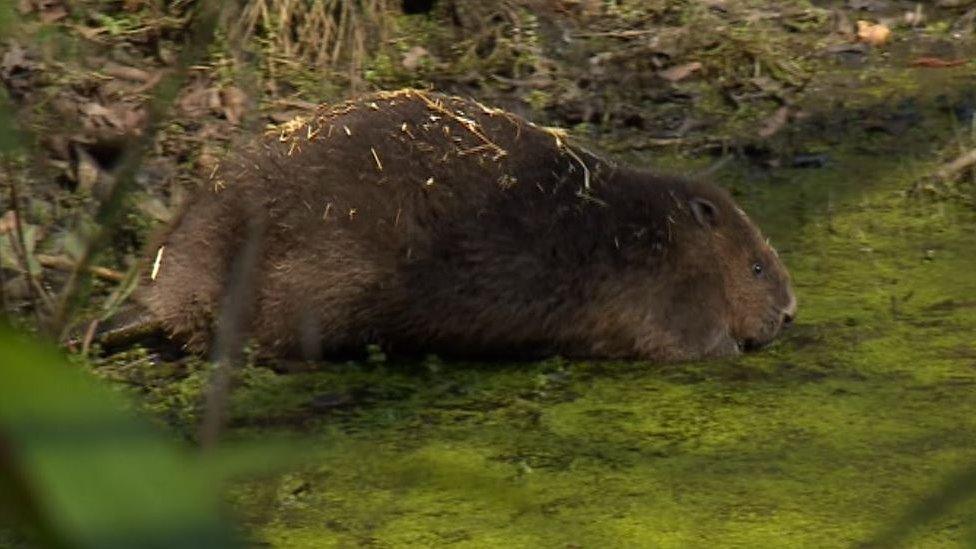
- Published23 January 2020
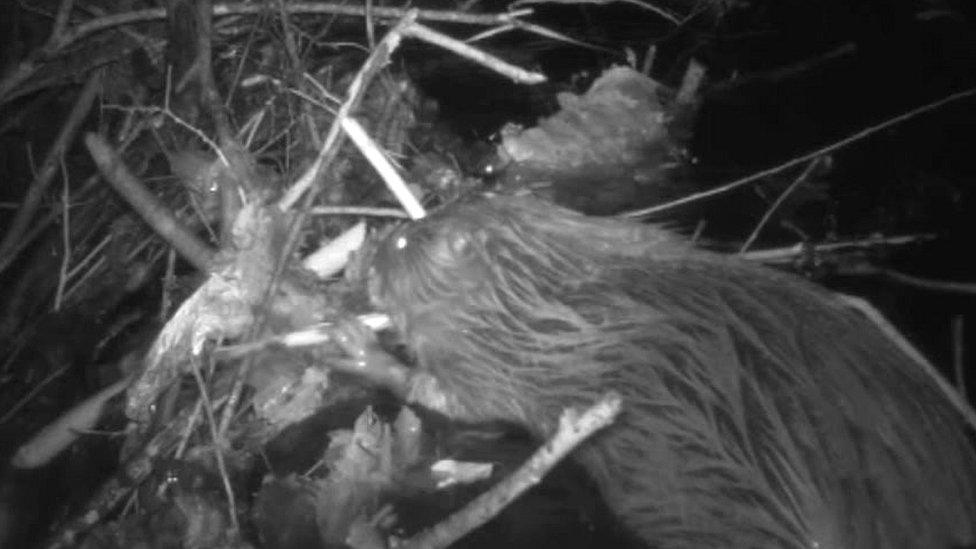
- Published1 May 2019
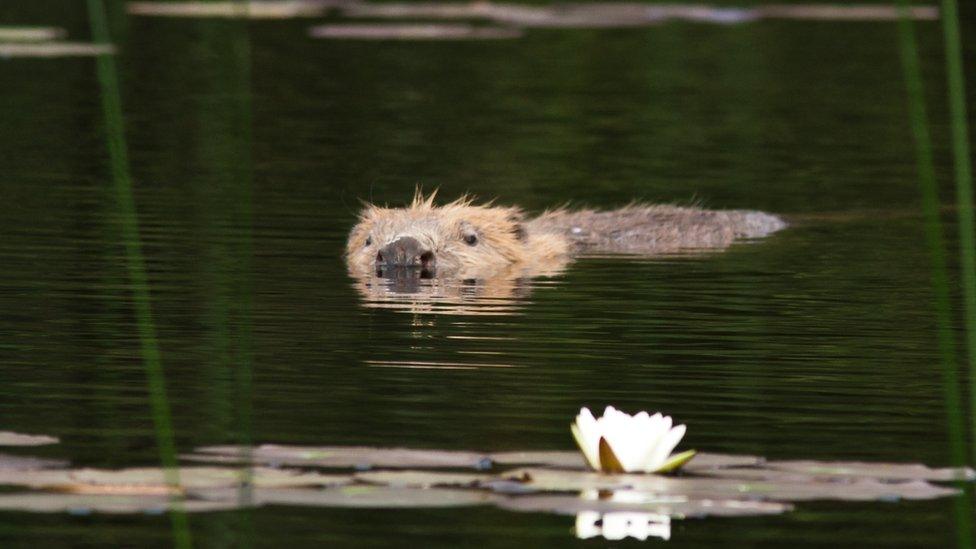
- Published25 January 2020
